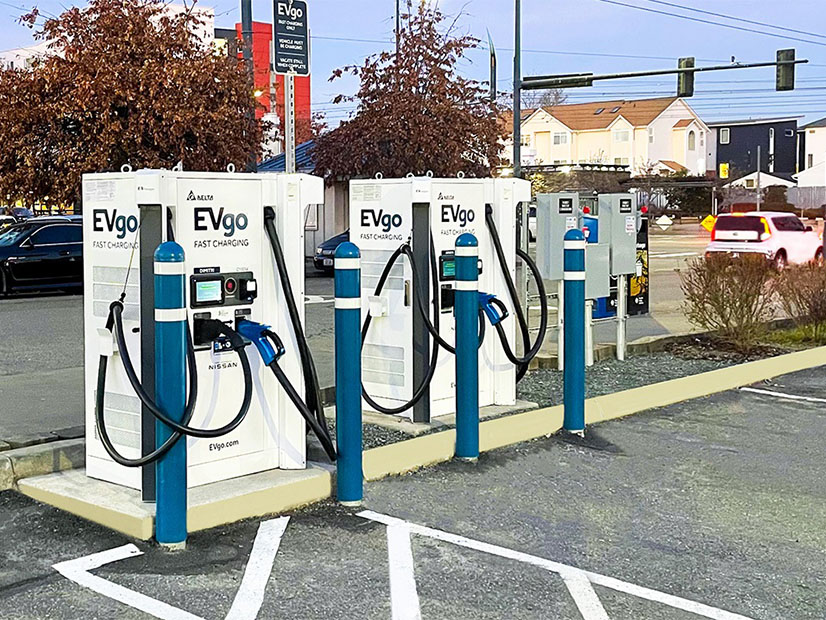
Washington's Department of Agriculture is mulling a petition by the EV charging industry to eliminate a state requirement that public chargers contain a credit card chip reader for payments.
Washington’s Department of Agriculture is mulling a petition by the electric vehicle charging industry to eliminate a state requirement that EV chargers contain a credit card chip reader for payments.
The Electric Vehicle Charging Association (EVCA), Tesla and six charging station suppliers in July petitioned the agency to overturn the requirement laid out in 16-662 WAC, a set of EV supply equipment (EVSE) rules approved in December 2022 and scheduled to go into effect in January 2024.
The petitioners argued the rules were designed to align with California’s EVSE regulations, which at the time required charging stations be equipped to accept payment via a toll-free telephone number, a mobile payment system and a chip reader.
But, in July, California revised its rules to match the National Electric Vehicle Infrastructure program, a massive federal initiative to subsidize installation of charging stations along key U.S. travel corridors, which does not require inclusion of chip readers on chargers.
That would leave Washington as the only state with rules requiring chip readers.
“To put it simply, manufacturers will have to design an EV charging product just for operating in Washington.” the petition said. “This will add further complexity and costs to multistate EV [supply equipment] projects, such as those running across California, Oregon and Washington. For EV drivers in Washington, it will also result in different payment experiences, offerings, reliability and potentially costs to charge from that of surrounding states.”
In September, the Agriculture Department told the petitioners it would not require chip readers to be installed in new charging stations until the state reviews the issue.
Opposing the petition is environmental and consumer advocacy organization Northwest Energy Coalition (NWEC), which argues a policy change will discourage low-income residents from buying EVs. The vehicles already are beyond the reach of many lower-income families, the group noted, with manufacturers trying to reduce prices for certain models to be more affordable.
“We need to meet households where they are if we are to transition quickly and equitably” to EVs, NWEC spokesperson Matt Joyce told NetZero Insider in an email. “Removing this requirement will mean unbanked, underbanked and people without smartphones will have a more challenging charging experience. … If Washington is going to move to electric vehicles, everyone needs to be able to access electricity and how you pay should not be a barrier.”
Joyce said 30% of drivers with incomes below $50,000 do not have access to smartphones with contactless payment ability. He also noted that electricity ratepayers and taxpayers are subsidizing the construction of charging networks.
In an interview, Joyce said the charging industry wants to avoid adding chip readers to chargers because it is cheaper to build stations without the devices.
In an email to NetZero Insider, the EVCA noted that contactless credit and debit cards are widely used and are expanding rapidly in use. It also said charging stations usually have an automated toll-free phone number or a short message/messaging system that provides a customer with the option to initiate a vehicle charge session and to submit payments.


